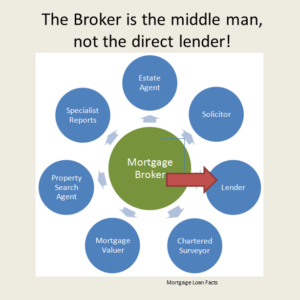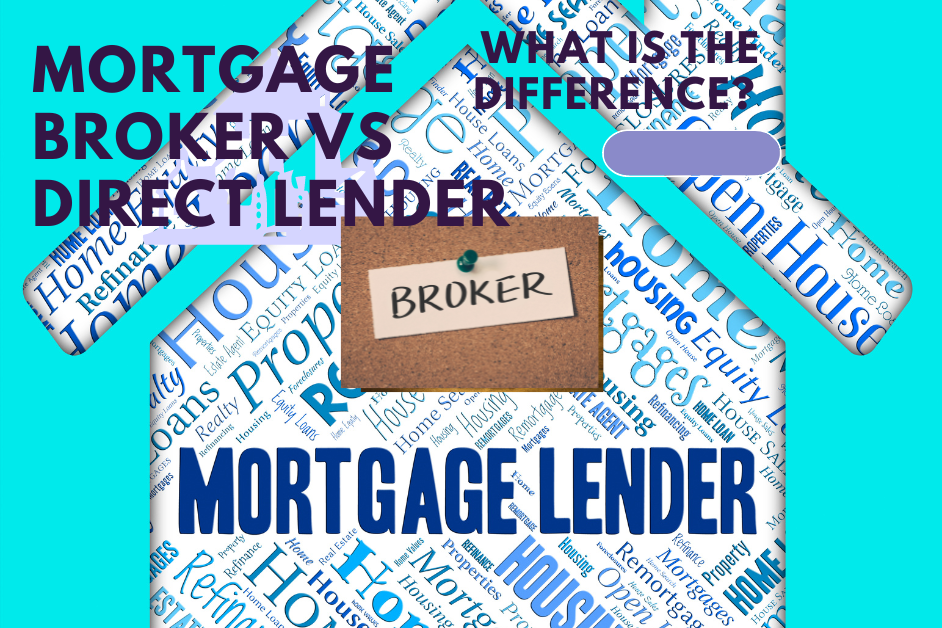Mortgage Banking Institution vs. Broker’s Office
Having worked in the Mortgage Banking and Brokering divisions of lending, I will give you a breakdown of how it works so that you can make the decision about what is best for you. Read this also.
A Mortgage Banking Institution (Mortgage Lender) will meet all of your needs under one roof
Mortgage Banker: A Mortgage Loan Officer (Account Executive, Loan Specialist, etc. within a Bank) can offer you a loan at their best rate and without as much closing cost due to the following:
1. Most Banks have a mortgage loan department, quote their own rates, and originate, process, underwrite, close, fund, and service the loans. * There could be exceptions for servicing the loan.
The bank does not have to pay anyone else to do these functions, therefore they can charge you less in some instances.
They make their money when this loan is sold to FNMA (“Fannie Mae”) or FHLMC (“Freddie Mac”) after the loan is funded. These are the guys whom you have heard so much about lately. Believe me when I say, in spite of their fall, their guidelines are the best. They only made the mistake of trying to compete with Sub-Prime.
2. Not always, but usually, you may not have to pay an origination fee or discount fee (buying down the rate) as the going rate may meet your needs. They can absorb this.
3. They are called a direct lender and have direct access to the Secondary Mortgage Agencies mentioned above and this is where their guidelines are focused. The bank is calling all of the shots.
Please note, as I have stated this may vary to some degree with each institution as some Mortgage Banking Institutions do not service their loans, they sell the loan immediately to other larger institutions.
Mortgage Broker: A Broker’s Office usually can offer the following:
A Mortgage Broker can offer more products as they are dealing with more than one lender. This gives them options that one lender may not have. A Mortgage Broker is what is sometimes referred to as the “middle,” man. They try to get the best rates by looking at several banks’ offers for the day of locking.
 1. Mortgage Brokers are not direct lenders and do not have direct access to FNMA/FHLMC. They normally work through a Direct Mortgage Lender (Banking Institution). The broker directs the loan to them, who may sell the loan to someone else, and they may keep the servicing or vice-versa.
1. Mortgage Brokers are not direct lenders and do not have direct access to FNMA/FHLMC. They normally work through a Direct Mortgage Lender (Banking Institution). The broker directs the loan to them, who may sell the loan to someone else, and they may keep the servicing or vice-versa.
2. They DO NOT complete the final underwriting of the mortgage loan, fund the loan, or service the loan. The broker originates the loan only. The final underwriting and closing are done by the Lender who is buying the loan; therefore you sometimes have more closing costs.
The Lender’s name is on the mortgage note, not the Broker’s. This may vary with a Correspondent Lender. “Another subject”.
3. You may have these fees: origination, discount, underwriting, processing, and application and administration.
These are examples of what the difference is over and above the normal charges in a mortgage loan. Appraisal fee, flood cert fee, credit report fee, etc. which the “Bank” will charge if they originate the loan directly.
As stated, the Broker normally works with more than one lender. This can be an advantage as they know each lender’s rates, one lender’s rates for the day may be better than another.
The closing criteria and there are choices of different insurance agencies is also a factor. This gives the prospective more choices in some areas.
The Broker must make their income from the upfront fees and by increasing your rate of interest slightly by .125, etc., they can also make an additional percentage on what we call the back end.
*A Lender does this, but not as frequently. This is the fee you never see! The Broker cannot survive financially if they charge no fees.
They may range higher than 1%. Broker: 1% (+-) origination. Underwriting fee (varies, usually around $400 +-), processing fee (varies, $250 +-), and administration fee (varies about $150+-).
Hopefully, this clarified some of the differences between a Mortgage Loan Banker (Lender) and a Mortgage Loan Broker and the fees they charge.
*Disclosure, rules, regulations, and guidelines change frequently. Often daily, monthly, etc. We have given here what we are aware of at this time.



